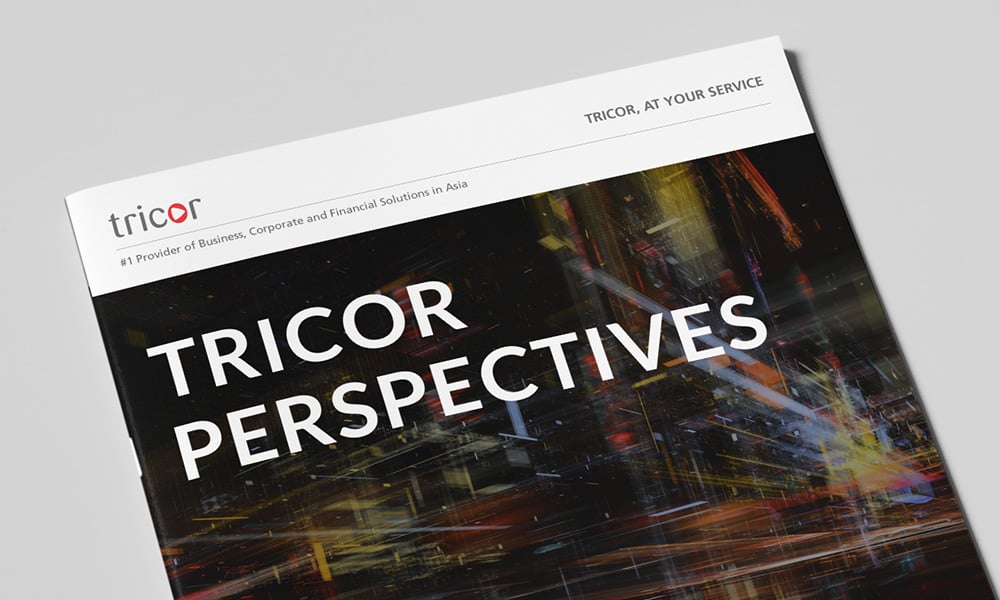With almost one-quarter of China’s high-net-worth individuals (those with investable assets over RMB50 million) using family trusts[1], we look at what lies behind their rising popularity across Asia and assess whether this trend can continue. We also explore the various benefits trust structures can provide, touching on some of the challenges that may impact their future growth.
Recent global events have highlighted the importance of robust business planning. According to Tricor’s COVID-19 Business Sentiment and Resilience Barometer Report, 43% of surveyed Asia-Pacific executives now have a greater need of additional support to mitigate business-continuity risks.
In tandem with business continuity is asset preservation, especially where family wealth is involved. As families explore ways to put in place structures that can safeguard their assets, there is one vehicle that deserves serious consideration – the private family trust.
The Key Benefits of Private Family Trusts
Leading the benefits list is asset protection. Trust assets can be shielded against creditor claims – ideal for wealth derived from business activity – allowing for a smoother transfer of assets to future generations. There is also a lower chance of the trust creator's original intentions being disrupted by external events, such as claims from third parties.
Such protection extends to the government’s tax department as well. Compared to relying on a will, the private family trust structure can – depending on the jurisdiction – minimise the effect of inheritance tax. Also, the testamentary laws (laws regarding wills) in some territories limit the freedom of the executor to distribute the contents of a will in a way of their choosing. In contrast, trusts generally offer much greater discretion in that regard, thanks to the trustees’ powers.
There is also the convenience factor. While a trust does require some initial setup work, it provides more convenience to the beneficiaries in the long run. Assets held in a trust do not need to pass through probate management (the legal process of asset distribution according to the terms of a will) should there be an unexpected tragedy that causes an estate to be left without a will. This means the assets will not be frozen while awaiting the probate process to happen, which could take months and risk jeopardising the family business, such as when shares are frozen.
Beyond asset preservation, private family trust can also help ensure business continuity among family-owned entities, preserving the assets in question. However, change is constant, and in recent years challenges have arisen that could threaten the popularity of trusts.
Potential Issues on the Horizon
Families like to keep details of their wealth private, and trusts have generally allowed them to do this. The current trend, however, is edging toward transparency. As inequality – or at least the perception of inequality – continues to rise, the use of tax optimisation strategies by both corporations and individuals have come increasingly into focus. This has spurred new regulations on trusts around the world.
New Zealand, for example, reformed its trust law at the end of January 2021[2]. Under the new legislation, trustees must disclose information about the trust to beneficiaries who request it. Although there is some leeway in what the trustees have to declare, the rule change significantly reduces trust anonymity. In Australia, regulators are cracking down on the practice of “trust stuffing” – injecting assets unrelated to the deceased into a trust[3].
For Hong Kong, the Common Reporting Standard (“CRS”) is now applicable to trusts. The CRS mandates trusts to furnish all details of their controlling persons to the Inland Revenue Department annually. This is a wide-ranging definition that encompasses trustees, beneficiaries, settlors, protectors, and others.
This information is expressly designed to be shared with 75 other jurisdictions under the automatic exchange of financial account information (“AEOI”) rules –[4]. Non-Hong Kong tax residents living in countries with significant inheritance-tax levels and who use Hong Kong trusts to minimise their effect might request that trusts avoid CRS reporting or even furnish misleading information. Both are offenses punishable by both fines and imprisonment.
The Rise of Sustainable Trusts
Greater financial transparency is one trend that has and will continue to affect trusts. Another is the shift toward sustainability. Global investment that is linked to environmental, social and governance (“ESG”) factors has tripled in eight years to hit US$40.5 trillion in 2020[5]. The way family trust assets are invested will likely reflect this movement. Sustainable trusts are also a useful way for family members to ensure that the wealth they bequeath now continues to be managed across the generations in a socially responsible manner.
A 2019 survey showed that 62% think that family offices will invest sustainably by 2022, double the current amount[6]. The pandemic has only accelerated this.
The Future of Trusts – Transparency and Sustainability
The CRS requirement may indeed reduce the attractiveness of private family trusts, but for those who understand that greater transparency is nothing to be feared and place greater value on the other benefits these vehicles provide, private family trusts will continue to hold their appeal. And people who feel a sense of duty in using their wealth to benefit the world may see sustainable trusts as the ideal wealth-preservation vehicle.
[1] https://www.statista.com/statistics/1012833/china-usage-of-family-trust-services-by-hnwis/
[2] https://www.justice.govt.nz/justice-sector-policy/key-initiatives/trust-law-reform
[3] https://www.afr.com/politics/federal/wealthy-to-be-stopped-from-trust-stuffing-20191015-p530w8
[4]https://www.ird.gov.hk/eng/tax/dta_aeoi.htm
[5] https://www.pionline.com/esg/global-esg-data-driven-assets-hit-405-trillion
[6] https://www.asianinvestor.net/article/how-asias-family-wealth-transfers-could-bolster-esg/464247







